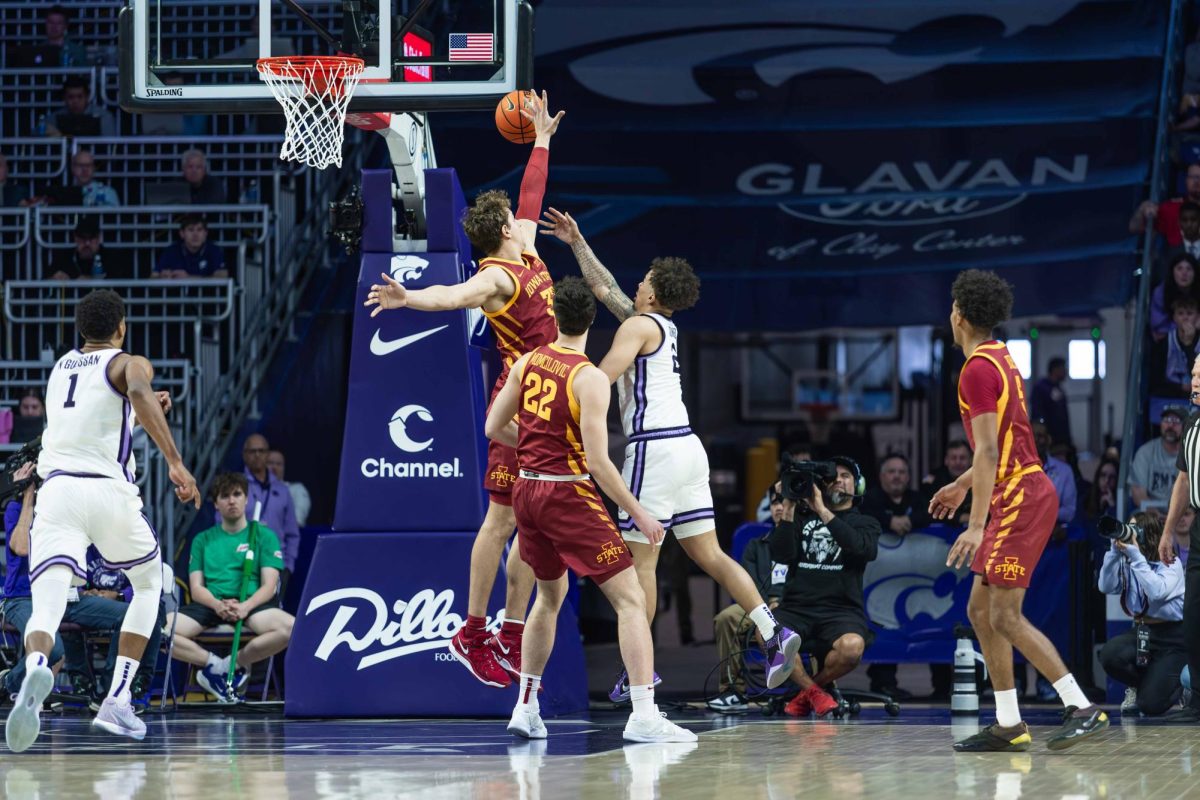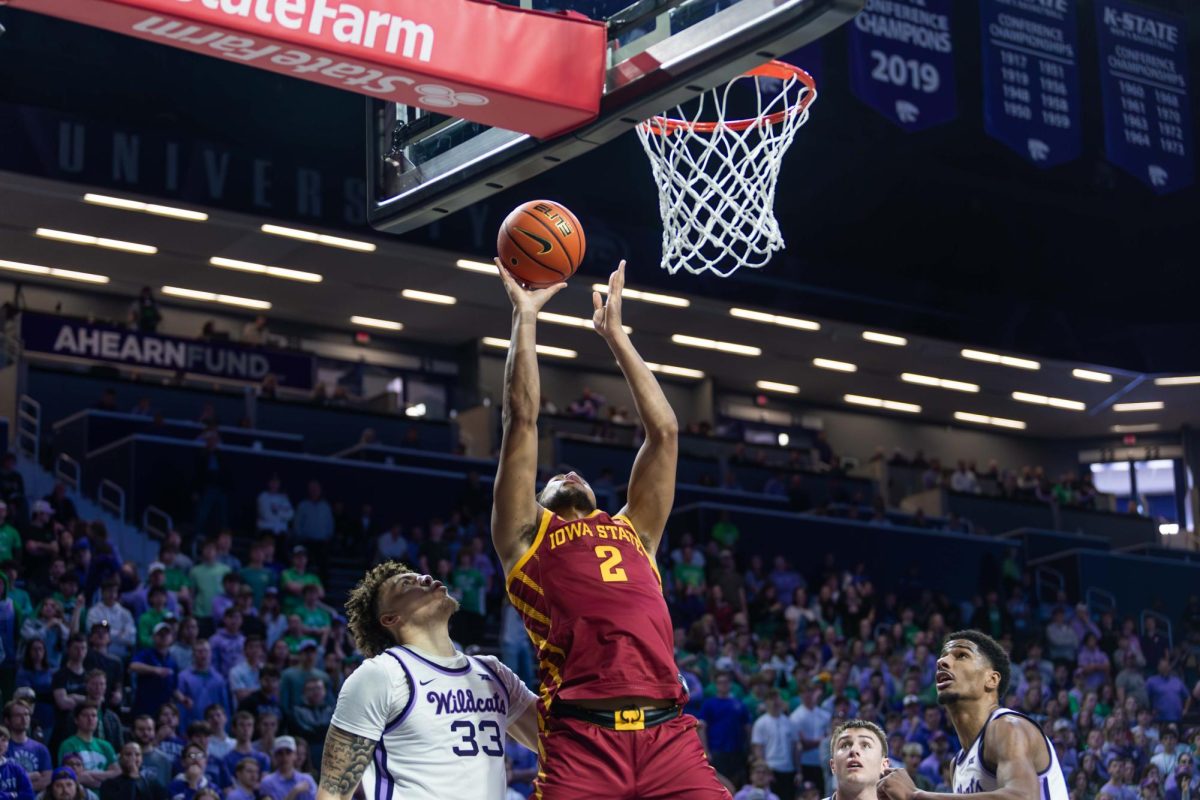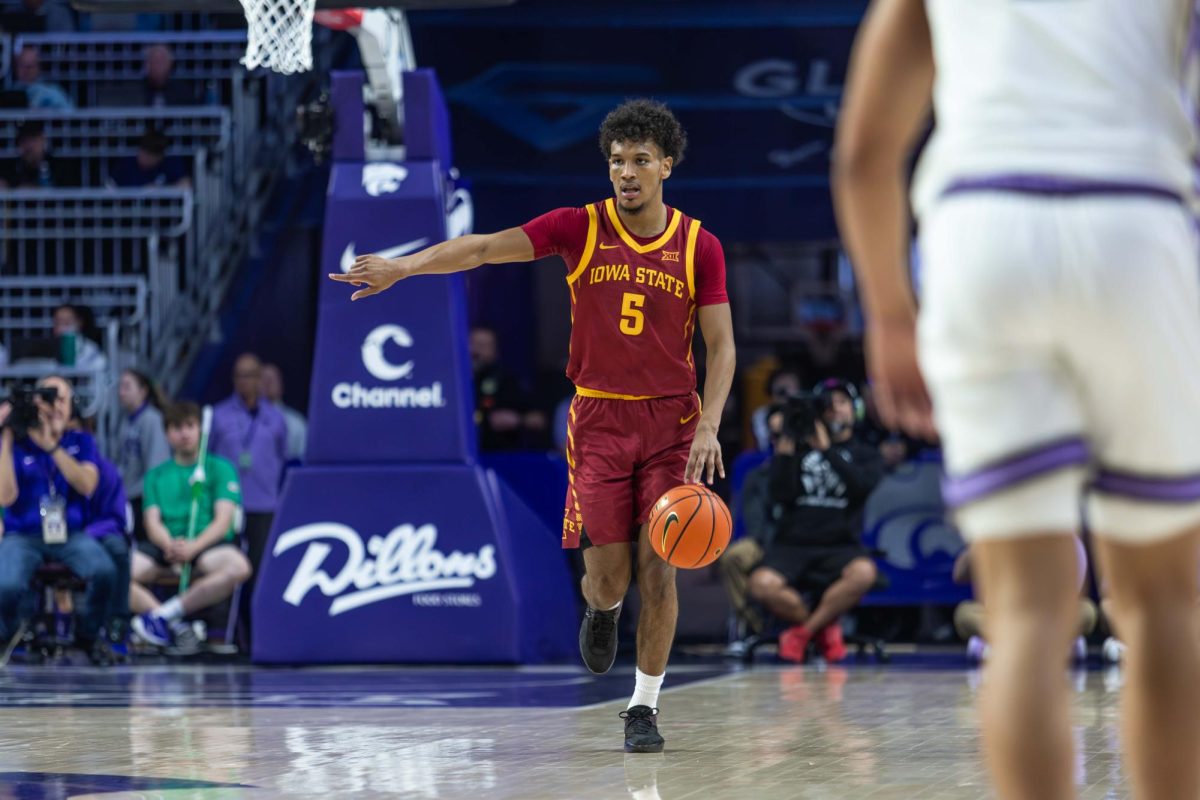CLUBS: Spirit of the game
February 11, 2010
Anyone who has ever picked up a Frisbee disc knows how fun — or frustrating — throwing one around can be. But for those who play competitive ultimate Frisbee, what they do is far more complex than a simple game of toss and catch.
Iowa State is home to both a men’s and women’s ultimate Frisbee team. A sport many have played in high school gym class is, to the members of the teams, one that is every bit as intense and cutthroat as any other.
“It’s some of the most fun I’ve ever had,” said Michael Brisbois, senior in finance.
Ultimate Frisbee is more than just a game to a lot of people across the country. Many of the athletes who compete in college also did so in high school.
“There’s definitely recruiting that goes on for ultimate teams,” said men’s captain Kyle Teske, senior in computer engineering. “Minnesota especially is huge for high school ultimate teams.”
College ultimate Frisbee teams play under an organization called the Ultimate Players Association.
The UPA charges dues and puts out rankings of its member teams, as well as holds tournaments based on the perspective talent levels of the teams.
“The schedule is based on talent,” Brisbois said. “So it’s hard for guys to get into big tournaments when they’re not as good.”
But it’s not just the guys that get to play ultimate — the women are every bit as competitive.
“We get invited to most of our tournaments because we made nationals last year,” said women’s co-captain Jasmine Draper.
Typically, teams in both men’s and women’s divisions have to send in bids to the various tournaments that are held to gain entry.
“You just send them a letter, letting them know you’re interested in playing,” Teske said.
Teams can accept bids to tournaments, as well as opt out of tournaments at any point throughout the year, all in preparation for postseason tournaments.
The goal of each ultimate team is to make it to the national UPA tournament. But before teams can make it to the big show, they must first advance through the sectional and regional tournaments with teams from everywhere in the Midwest.
Teams throughout the section and region vary in size.
“Iowa State is pretty big overall in the ultimate community,” said women’s co-captain Michelle Johnson,, senior in biochemistry. “There are teams bigger and smaller, but altogether, with women’s and men’s, we’re pretty big.”
Both teams are funded by the Government of the Student Body at Iowa State. GSB gives funds to the teams to pay for bids for tournaments, but the rest is up to them.
“We pay for our transportation and equipment,” Brisbois said. “We do fundraising and stuff to get money.”
A great way to raise funds for the team, Johnson said, is to host a tournament.
“[Tournaments] are great,” Johnson said. “We use most of that money to help with traveling.”
Both teams travel as far as Texas or Philadelphia, Pa., for tournaments. The teams also attend a tournament each year during Mardi Gras.
Tournaments also vary in size.
“It depends on the tournament,” Teske said. “There are usually twice as many men’s teams as women’s. Anywhere between 10 and 60 teams can be at a tournament.”
Big tournaments can also mean a decent pay out for the winning teams. Cash received for a tournament win goes directly to the team account to be used towards other team needs, Teske said. But not always, Draper said, is the prize cash.
“Sometimes the winning team will get an automatic bid to next year’s tournament,” Draper said. “It really varies tournament to tournament.”
When the tournaments are over, and all the competitive juices are done flowing, team members get to doing what they do best: partying.
Ultimate parties, Brisbois said, are the best.
A tradition among Ultimate teams is to do what they call “a disk.” Doing a disk involves filling a regulation Frisbee with beer — a disk holds four and a half cans — and gulping it down.
“You start with it on the ground, but once you pick [the disk] up, you can only take breaks [from drinking] in ten second intervals,” Brisbois said. “It’s usually over pretty quick. I pride myself in being one of the fastest.”
These parties are where teams that compete against each other go to unwind, and share in the camaraderie of the sport.
“There are teams who are our biggest competition on the field that are our best friends at the parties,” Draper said. “It’s really all one big community, and you make some of the best friends there.”
The teams do have to be accountable throughout everything, though.
“We pretty much police ourselves on and off the field,” Draper said. “We don’t have officials during the game, so you have to keep with the spirit of the game and call fouls, and things like that.”
Brisbois, Draper, Johnson and Teske all agreed that players know what’s right and wrong on the field, and they hold themselves to it. They also invite anyone who’s interested to go play.
“Even if you’ve never played, you can come and learn,” Johnson said.
And when it’s all said and done, they can go have a great time afterwards, too.
Afterall, it’s all part of the “spirit of the game.”






